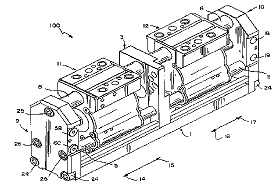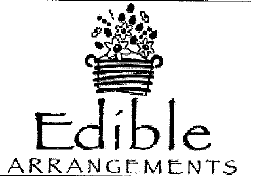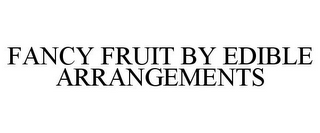
Indianapolis, Indiana – An Indiana patent attorney for Eli Lilly and Company of Indianapolis, Indiana (“Lilly”) and The Trustees of Princeton University of Princeton, New Jersey (“Princeton”) filed a patent infringement complaint in the Southern District of Indiana alleging that Nang Kuang Pharmaceutical Co., Ltd. of Tainan City, Taiwan and CANDA NK-2, LLC of Waco, Texas infringed and/or will infringe ALIMTA®, U.S. Patent Nos. 5,344,932 (“the ‘932 patent”) and 7,772,209 (“the ‘209 patent”; collectively, “the patents-in-suit”), which have been issued by the U.S. Patent Office.
ALIMTA, which is licensed to Lilly, is a chemotherapy agent used for the treatment of various types of cancer. ALIMTA is composed of the pharmaceutical chemical pemetrexed disodium. It is indicated, in combination with cisplatin, (a) for the treatment of patients with malignant pleural mesothelioma, or (b) for the initial treatment of locally advanced or metastatic nonsquamous non-small cell lung cancer. ALIMTA also is indicated as a single agent for the treatment of patients with locally advanced or metastatic nonsquamous non-small cell lung cancer after prior chemotherapy. Additionally, ALIMTA is indicated for maintenance treatment of patients with locally advanced or metastatic nonsquamous non-small cell lung cancer whose disease has not progressed after four cycles of platinum-based first-line chemotherapy. One or more claims of the ‘209 patent cover a method of administering pemetrexed disodium to a patient in need thereof that also involves administration of folic acid and vitamin B12. The ‘932 patent, titled “N-(pyrrolo(2,3-d)pyrimidin-3-ylacyl)-Glutamic Acid Derivatives,” along with the ‘209 patent, have been listed in connection with ALIMTA in the FDA’s publication Approved Drug Products with Therapeutic Equivalence Evaluations.
This Indiana patent infringement lawsuit arises out of the filing by Defendant Nang Kuang of an Abbreviated New Drug Application (“ANDA”) with the U.S. Food and Drug Administration (“FDA”) seeking approval to manufacture and sell generic versions of ALIMTA prior to the expiration of the ‘932 and ‘209 patents. Nang Kuang filed as a part of that ANDA a certification of the type described in Section 505(j)(2)(A)(vii)(IV) of the Food, Drug and Cosmetic Act, 21 U.S.C. § 55(j)(2)(A)(vii)(IV), with respect to the patents-in-suit, asserting that the claims of the patents-in-suit are invalid, unenforceable, and/or not infringed by the manufacture, use, offer for sale, or sale of Defendants’ ANDA products.
In their complaint, filed by an Indiana patent lawyer, Lilly and Princeton state that Defendants intend to engage in the manufacture, use, offer for sale, sale, marketing, distribution, and/or importation of Defendants’ ANDA products and the proposed labeling therefor immediately and imminently upon approval of the ANDA i.e., prior to the expiration of the patents-in-suit. Plaintiffs asserts that Defendants’ actions constitute and/or will constitute infringement of the patents-in-suit, active inducement of infringement of the patents-in-suit, and contribution to the infringement by others of the patents-in-suit.
The complaint, filed by an Indiana patent lawyer, lists the following claims:
- Count I: Infringement of U.S. Patent No. 5,344,932
- Count II: Infringement of U.S. Patent No. 7,772,209
Lilly and Princeton ask the court for:
(a) A judgment that Defendants have infringed the ‘932 patent and/or will infringe and/or actively induce infringement of the ‘932 patent;
(b) A judgment ordering that the effective date of any FDA approval for Defendants to make, use, offer for sale, sell, market, distribute, or import Defendants’ ANDA Products, or any product the use of which infringes the ‘932 patent, be not earlier than the expiration date of the ‘932 patent, inclusive of any extension(s) and additional period(s) of exclusivity;
(c) A preliminary and permanent injunction enjoining Defendants, and all persons acting in concert with Defendants, from making, using, selling, offering for sale, marketing, distributing, or importing Defendants’ ANDA Products, or any product the use of which infringes the ‘932 patent, or the inducement of any of the foregoing, prior to the expiration date of the ‘932 patent, inclusive of any extension(s) and additional period(s) of exclusivity;
(d) A judgment declaring that making, using, selling, offering for sale, marketing, distributing, or importing of Defendants’ ANDA Products, or any product the use of which infringes the ‘932 patent, prior to the expiration date of the ‘932 patent, infringes, will infringe and/or will actively induce infringement of the ‘932 patent;
(e) A judgment that Defendants have infringed the ‘209 patent and/or will infringe, actively induce infringement of, and/or contribute to infringement by others of the ‘209 patent;
(f) A judgment ordering that the effective date of any FDA approval for Defendants to make, use, offer for sale, sell, market, distribute, or import Defendants’ ANDA Products, or any product the use of which infringes the ‘209 patent, be not earlier than the expiration date of the ‘209 patent, inclusive of any extension(s) and additional period(s) of exclusivity;
(g) A preliminary and permanent injunction enjoining Defendants, and all persons acting in concert with Defendants, from making, using, selling, offering for sale, marketing, distributing, or importing Defendants’ ANDA Products, or any product the use of which infringes the ‘209 patent, or the inducement of or contribution to any of the foregoing, prior to the expiration date of the ‘209 patent, inclusive of any extension(s) and additional period(s) of exclusivity;
(h) A judgment declaring that making, using, selling, offering for sale, marketing, distributing, or importing of Defendants’ ANDA Products, or any product the use of which infringes the ‘209 patent, prior to the expiration date of the ‘209 patent, infringes, will infringe, will actively induce infringement of, and/or will contribute to the infringement by others of the ‘209 patent;
(i) A declaration that this is an exceptional case and an award of attorneys’ fees pursuant to 35 U.S.C. § 285; and
(j) An award of Plaintiffs’ costs and expenses in the action.
Practice Tip #1: This summer, Lilly succeeded in defending the ‘209 method-of-use patent in before District Judge Tanya Walton Pratt in the Southern District of Indiana. The court found, inter alia, that the patent did not fail for “obviousness.”
Practice Tip #2: Obviousness is a legal conclusion based on underlying factual findings. Such findings include: 1) the scope and content of the prior art; 2) the differences between the claims and the prior art; 3) the level of ordinary skill in the art; and 4) objective considerations of non-obviousness such as commercial success and satisfaction of a long-felt need. Moreover, it is insufficient that prior art merely includes separate references to the subject matter of a subsequent patent claim. Instead, obviousness requires the additional showing that a person of ordinary skill in the art of the subject matter would have combined those elements of the prior art.
Continue reading















